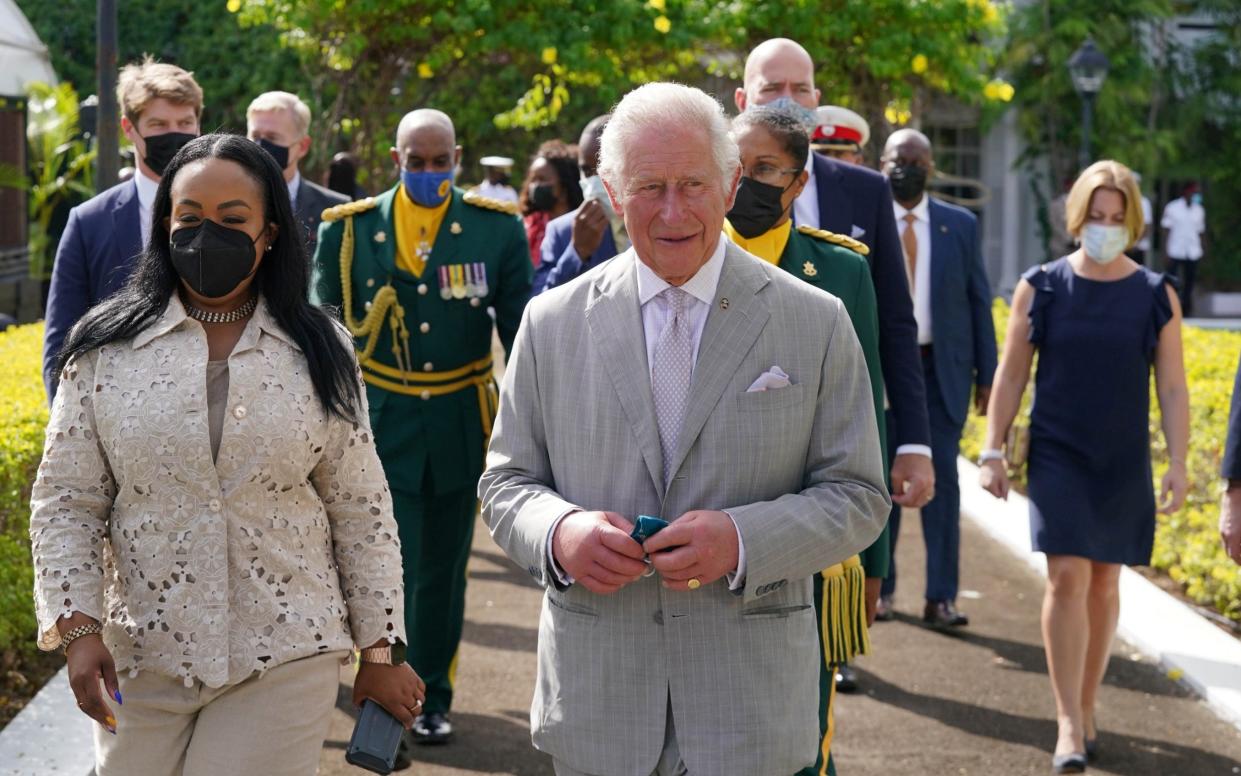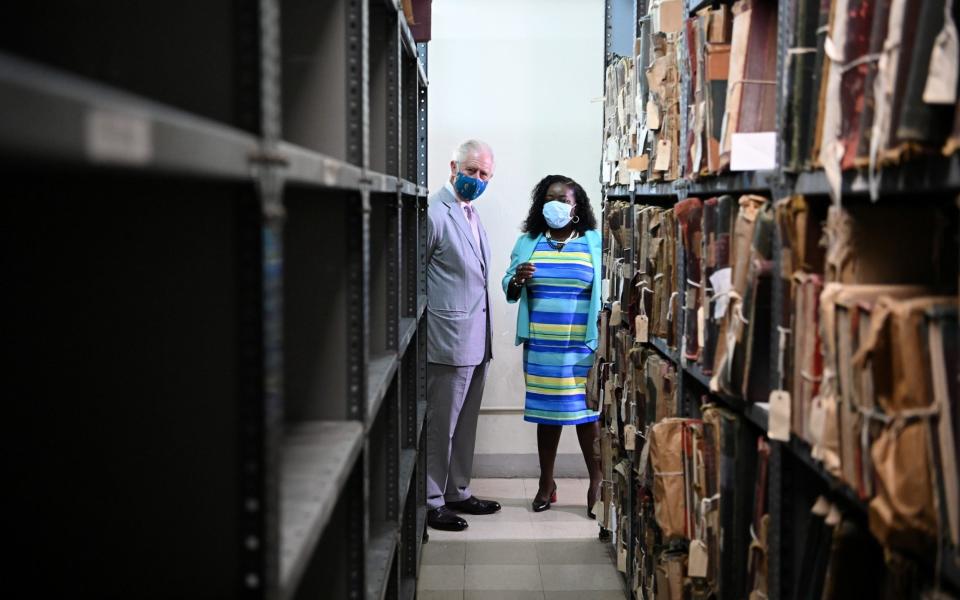Once its future king, the Prince of Wales wakes up in Barbados a visiting guest

- Oops!Something went wrong.Please try again later.
When the Prince of Wales landed in Barbados, he was officially a prince of the realm and future king, afforded all the honours the country’s protocol could muster.
On Tuesday, as he woke up in the new republic, he did so in the role of visiting guest - and the world around him had changed.
In his first engagement of the day, he attended a reception hosted by the new president of the republic in what on Monday was called Government House and is now called State House, as a result of the changed status of its incumbent.
The “Toast to the Nation” reception, in the garden of the residence, saw the Prince watch on as Dame Sandra Mason - who moved seamlessly from the Queen’s representative in Barbados as governor-general to president at midnight - held court.
Dame Sandra, who had been the eighth governor-general and in position from 2018 to 2021, was nominated by Mia Mottley, the prime minister, and Joseph Atherley, the opposition leader, to be the country’s first president, unanimously elected by parliament in October.
While her home’s change of name would go unnoticed to most overseas visitors, it will be of keen interest to the Prince - who would have expected to one day follow in his mother’s footsteps to be a King of Barbados.
At the midnight ceremony which saw the country officially become a republic, the Prince told a crowd he would always consider himself a “friend of Barbados” in a magnanimous speech in which he emphasised the country’s continued ties with the Commonwealth.
He accepted the Order of the Freedom of Barbados, swapping his usual duties of conferring honours on others at home in Britain for standing one step below Dame Sandra, as she honoured him.
From a stage, he watched in silence as the Royal Standard was lowered, folded, rolled and wrapped, before being put away for good and replaced by the presidential flag.
On Sunday night, he stepped out of the RAF Voyager onto the tarmac as Prince of the realm, greeted with the national anthems of Barbados and the UK.
When he ascends the stairs to fly home again on Tuesday night, God Save the Queen will ring out first, in honour of his new position as a visiting guest from the British monarchy.
Henceforth, the Royal Salute - played for the final time ahead of Dame Sandra’s inauguration - will be replaced by a Presidential Salute, with the military presenting new colours stripped of the Crown and Royal Cipher.
Prisoners on the island will no longer be detained at “Her Majesty’s Pleasure”, politicians will swear an Oath of Barbados, and nobody will formally pledge allegiance to the Queen.
Prince shown slavery documents during tour of National Archives
The Prince has viewed documents relating to slavery in Barbados, as he was taken on a tour of the National Archives. He was shown documents relating to emancipations, as well as the records of the early settlers in the 1600s.
Wearing a mask and appearing deeply interested in the material, he was given a 30 minute tour of the carefully-maintained archives, hearing how staff are working to digitise thousands upon thousands of records to preserve them for future generations and allow more people to access them.
Among the displays were several photographs of previous Royal visits, including a young Prince of Wales himself.
A series of newspapers showed the rapturous reception that awaited the Queen and Duke of Edinburgh during a visit in 1960s, with headlines including "Riotous Welcome For the Queen", "All Hail our Live-Wire Sovereign" and "Royal Couple Shows Interest in Sugar".
He was also shown documents relating to his own family, including the paperwork declaring his mother as the Queen of Barbados in 1967.

The Prince was shown the 1833 Emancipation Act, written in black ink, which marked the moment slavery was abolished in Barbados in 1833.
It included a list of names, written in longhand, of the people convicted and transported to Barbados from Britain following the Monmouth Rebellion in 1685.
Built in 1908, the National Archives are situated close to the University of West Indies campus and contains manuscripts, letters, reports, books, maps, charts and photographs.
A spokesman said the documents provide a vital resource for the public, particularly the British Caribbean diaspora, who are trying to trace their family history.

